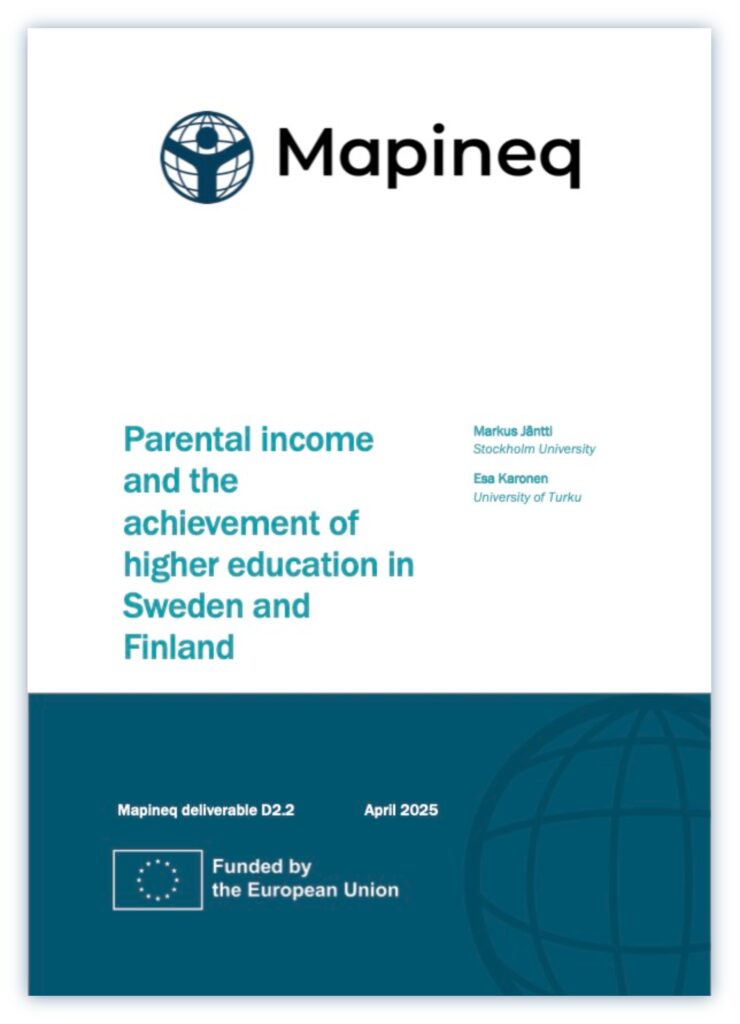Parental income and the achievement of the higher education in Sweden and Finland
This study examines how parental income influences the likelihood that a child attains higher education in Sweden and Finland. Recognizing that both parental income and children’s educational outcomes may be shaped by unobserved factors, we exploit variation in local labour market conditions—particularly during the economic recessions of the early 1990s—to identify the causal effects of childhood economic resources on later educational attainment. Using high-quality register data covering the years 1987 to 2020, we apply both instrumental variables and sibling fixed-effects approaches to address endogeneity concerns and account for family-level unobserved heterogeneity. Our findings suggest that parental economic resources play a significant role in shaping children’s educational outcomes. However, the strength of the association varies depending on the measure of parental resources considered. Causal estimates derived from instrumental variables tend to be larger than naive ordinary least squares estimates, indicating that simple correlations may underestimate the true effects. Moreover, parental labour income appears to be more consistently associated with children’s educational attainment than disposable household income, suggesting the importance of parental labour market attachment beyond financial resources alone. Some evidence also points to maternal income exerting a stronger influence than paternal income, although results differ by country and specification. Overall, our results highlight the critical role of dynamic changes in family economic conditions during childhood in shaping intergenerational educational mobility.
By Markus Jäntti & Esa Karonen.

Higher parental income during childhood causally increases the likelihood of higher education attainment, with instrumental variable estimates indicating stronger effects than naive correlations.

Labour income, rather than disposable household income, shows the most consistent influence, suggesting that parental labour market participation matters beyond financial resources alone.

Maternal income appears more influential than paternal income in several cases, though the magnitude of this effect varies between Sweden and Finland.

